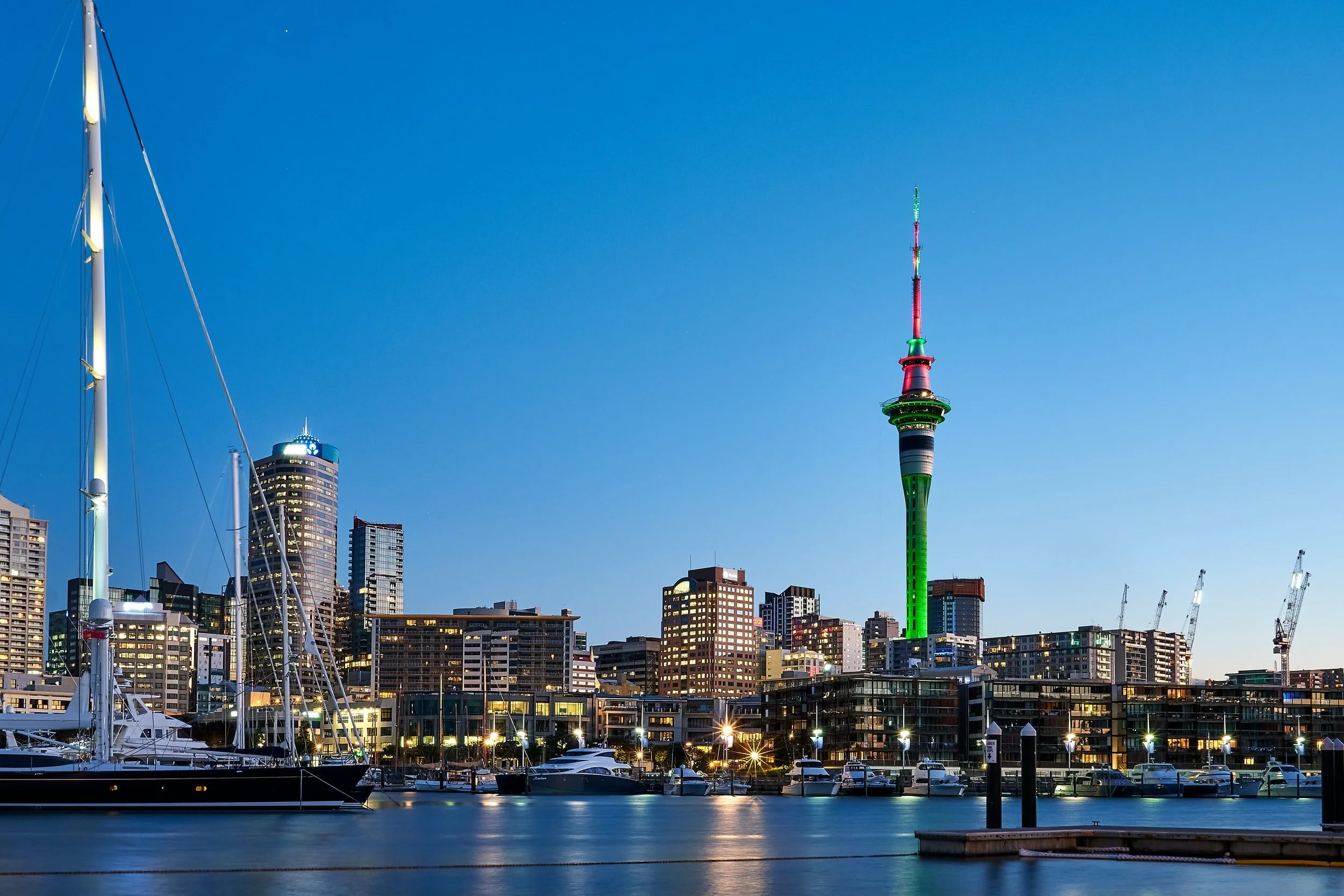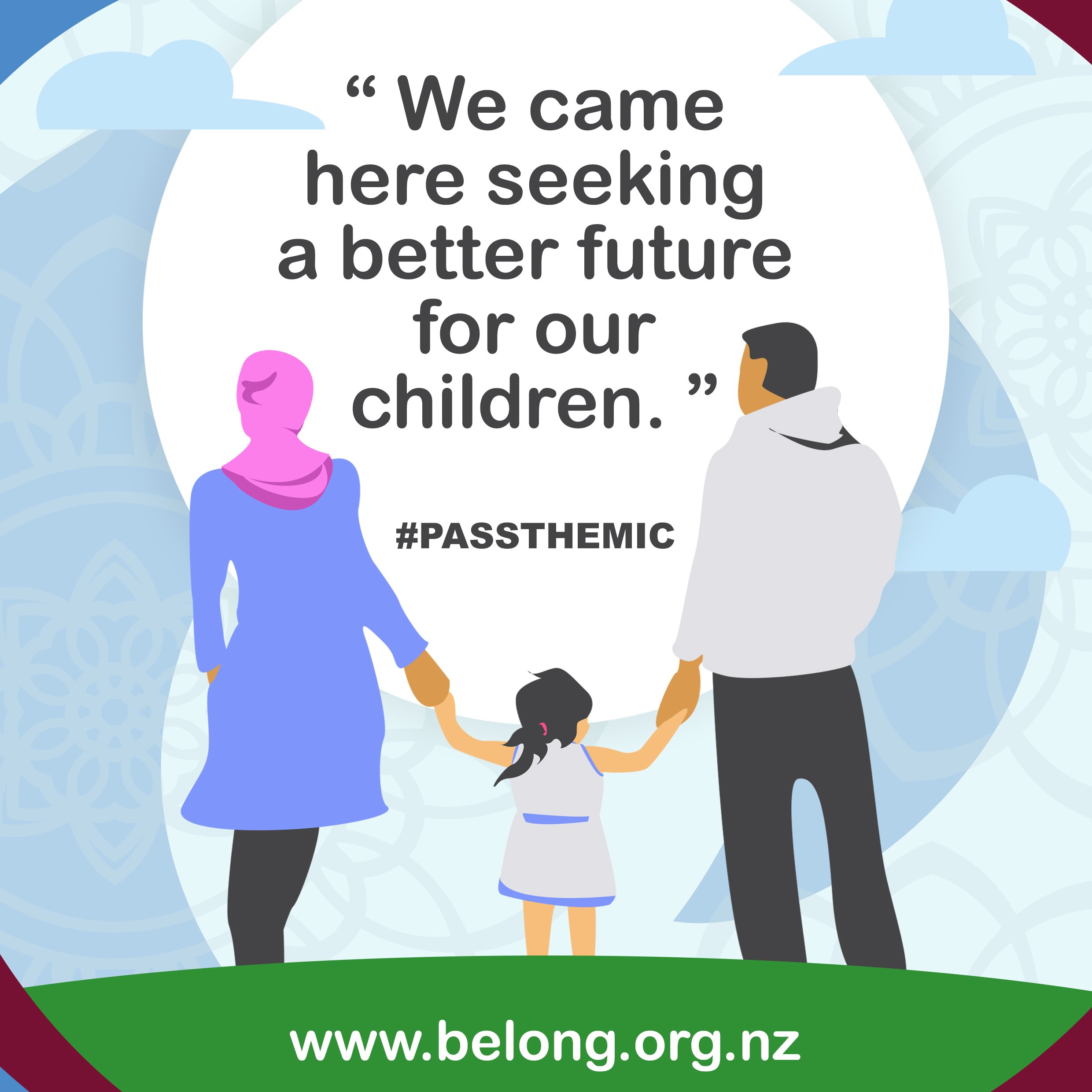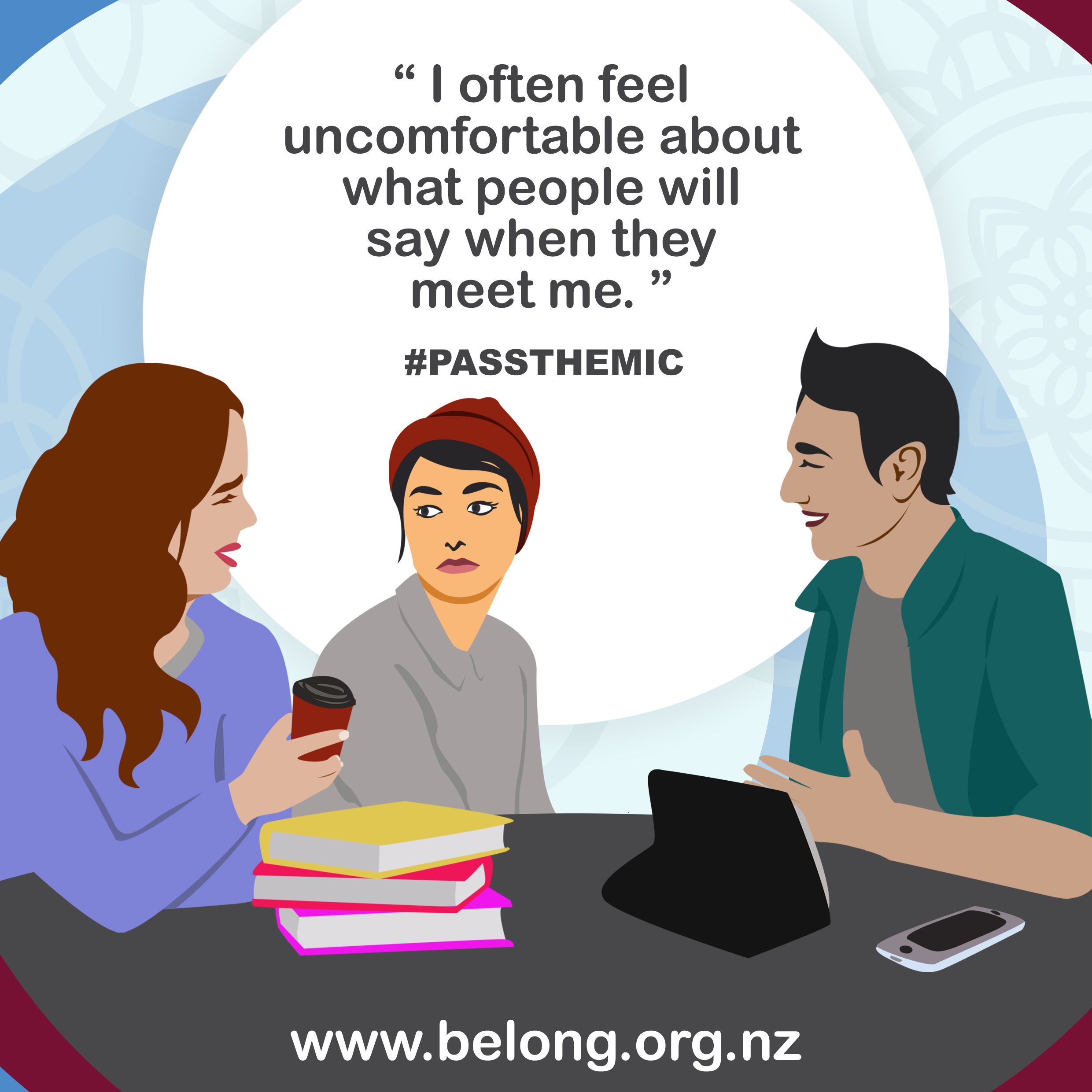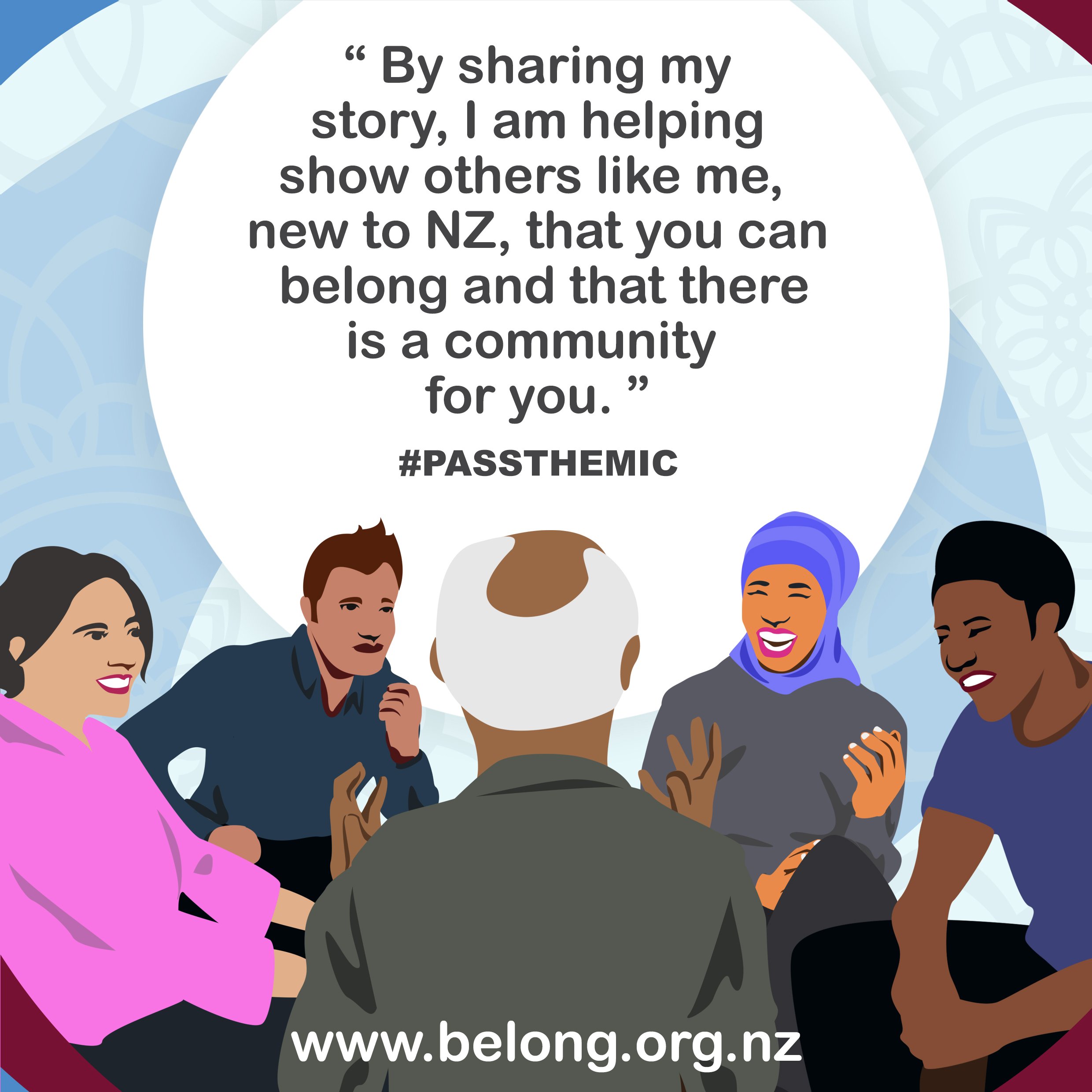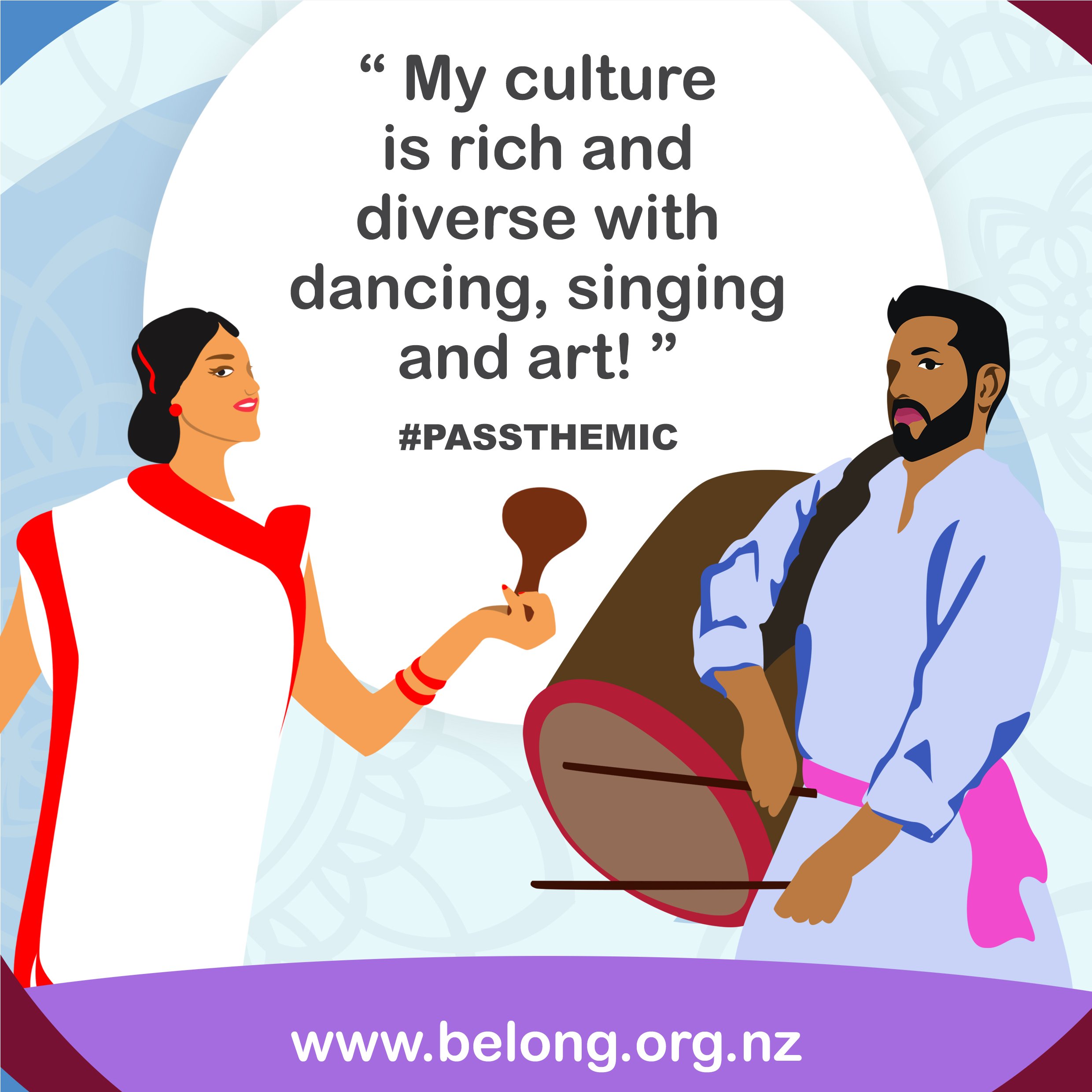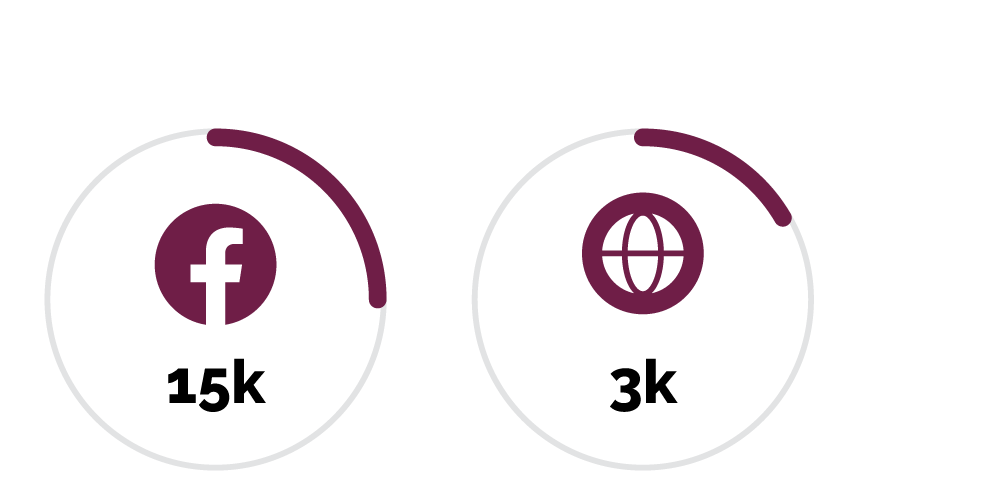Racism underpins many of the challenges experienced across different systems in New Zealand that is seen on a systemic level, right down to an individual level. From our hui, post-Christchurch attacks, our community was calling for media campaign, that would challenge racism and promote inclusion.
Together with Auckland City Central Library we hosted a hui to further develop this idea that asked attendees “what does an inclusion campaign looks like for them?”. The ideas shared were varied but with a clear theme around amplifying diverse voices and to challenge racism through allyship.
A working group was formed with expertise across migrant, former refugee, Māori, Pacific and Pākehā communities that co-designed #PassTheMic; a community-led media campaign which aimed to strengthen inclusion and belonging for migrants and former refugees in NZ. The aim was to challenge racism through allyship, amplify the voices of migrants and former refugees and to ensure they are the ones who speak for their communities.
Utilising social media, the campaign was able to reach a wider audience, sharing stories that resonated with people and supporting people to take action that helped in their own journey in allyship.
The campaign ran for six weeks and was multifaceted. Beyond sharing the stories of migrant and former refugee communities in ways that was meaningful for them and providing resources and ways for people to be allies, it also provided several other engagement opportunities for people to #PassTheMic through capability and capacity.
We had a media hui that brought together experts from Inclusive Aotearoa Collective Tahono, Amnesty International Aotearoa NZ and LeAd, who shared tips and advice to help communities in their media engagement.
We also ran a cross-cultural understanding programme that focused on supporting existing and upcoming community leaders around facilitation and leadership that helps them in their roles to amplify their communities’ voices. The programme was highly interactive, having participants learn theory and frameworks whilst also having an element that encouraged people to put to practice what they had learned.
#PassTheMic has also been applied on a local level, with Henderson-Massey local board through a book of stories, showcasing the diverse communities in the area and sharing their unique stories.
Challenging racism is a huge task but we know the power of storytelling, to not only present facts and experiences, but more importantly shifting beliefs and attitudes. We know that change doesn’t happen overnight, and is hard to measure, but when we give space for communities to share their lived experiences, it gives space for the richness of their insights to shape the very systems that hinder us all.
Engagement with the campaign was higher than average and the comments were largely positive.
The campaign was also picked up by mainstream media such as Stuff and Breakfast TV1, further extending its reach.
A survey was disseminated widely to the public on social media and to Belong Aotearoa networks. Respondents found it valuable. In addition to sharing resources, when asked what they were doing differently as a result of the campaign, respondents said they were adding their name to anti-racism submissions, were sharing anti-racism content, and encouraging people to speak up.
“[I have been] reading up on the plight of minority groups in media articles. Discussing issues with students, teachers and friends, pointing the finger at myself and monitoring my own reactions and behaviour"
“I found myself being more aware of racist content online, adding my name to anti-racism petitions, retweeting anti-racism tweets … using the analogy of passing the mic to others so we can hear their voices.”

